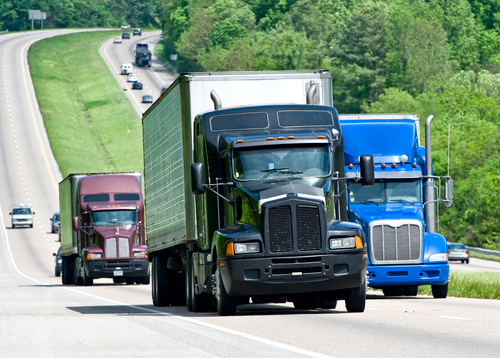Are Truckers Employees or Independent Contractors?
July 28, 2020
The answer can affect liability & legal options after truck wrecks.
When truck accidents happen, the employment of status of the involved truck drivers matters. The reason is that being a driver employee versus an independent owner-operator can impact:
- Who is financial responsibility for 18-wheeler crashes
- Whether workers’ compensation and/or other claims may be possible when truckers are hurt on the job.
Liability When Truckers Are Employees vs. Independent Contractors
When a truck driver may be at least partly at fault for a crash, his or her employment status can affect whether (s)he or the motor carrier may be legally liable for the wreck.
- When truckers are employees, the motor carriers will generally be responsible for the accidents caused by their employees during the course of the job. This liability can extend to accidents caused by vehicle equipment failures (arising from failures to maintain trucks), fatigued drivers (related to unrealistic driving schedules), and more.
- When truckers are independent contractors (or independent owner-operators), they—and not the motor carriers they do business with—will be legally liable for the accidents they cause. These truckers can also be liable for accidents caused by their failures to maintain their trucks and/or abide by any required trucking regulation.
Consequently, it’s not uncommon for motor carriers to claim that truckers are independent owner-operators when drivers are at fault for crashes.
Recovery Options When Truckers as Employees vs. Independent Contractors
When truckers are hurt on the job in accidents caused by others, their employment status can affect the available benefits and/or legal options for seeking compensation.
- When truckers are employees, they may be eligible to file workers’ compensation claims through their employer’s coverage after sustaining job-related injuries. Depending on how they were injured, they may also have claims against third parties. These could include other motorists who caused an 18-wheeler accident, the manufacturers of faulty vehicle equipment, shippers who failed to safely load the truck, and/or others.
- When truckers are independent owner-operators, they are not eligible for workers’ compensation benefits through the motor carriers they work with. They may, however, be able to seek benefits under any workers’ compensation they carry—and they may have claims against any of the third parties above, as well as possibly the motor carrier itself (depending on the event that caused their injuries).
Given that motor carriers can limit their liability and costs when truckers are independent owner-operators, it’s easy to see why several companies choose this classification when hiring drivers.
Am I a Driver Employee or an Independent Contractor?
If your employment contract does not clearly state your employment status, you may be an:
- Employee if you don’t own your own truck, you are covered by a motor carrier’s insurance, and the motor carrier controls the day-to-day details of how you do your job.
- Independent owner-operator if you do own your own truck, you carry your own liability insurance, and you generally have the freedom to manage how you do your day-to-day work.
Don’t Assume Motor Carriers Will Get It Right
Whether or not you’re clear on your status as a driver employee or independent owner-operator, it’s important to remember that you can’t rely on motor carriers to:
- Accurately define your role: To avoid or minimize liability after a crash, trucking companies can and often do argue that drivers are independent contractors—even when they may really be employees.
- Explain or honor your rights: Motor carriers will be in defensive mode after wrecks. That means protecting the company, not you. It can also mean that they work to put you in the hot seat (in place of them) if it comes down to it.
Help you understand and pursue your best options for compensation: A lawyer can be the advocate and ally you need when it’s time to pick up the pieces after a crash, protect your rights, and seek the financial recovery you may deserve.
